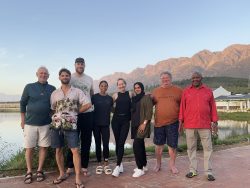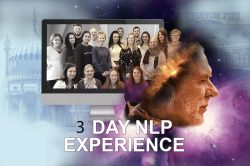Connection and Interconnectedness by Wesley Kew, Clinical Psychologist
The desire for connection, unity or just physical closeness runs deep in our veins. Some may say that it is inherent in our DNA and that we are in fact social animals. On many levels, I agree with all of the above, because, as they say, the only way to predict future results is by looking at the past. Applying this statement to mankind, highlights that we are in fact intimately connected to our fellow man.
What happens when this kind of intimately connected connectedness doesn’t serve our best interests anymore? And why are so many people reluctant to do something about the environment or relationships that don’t adequately serve them.
It is here that I’ll divert into the realm of the therapeutic space and begin to highlight how all too often clients confuse the map for the territory (Alfred Korzybski). Moreover, should you desire to make a change one must embrace the law of requisite variety? As Darwin reminds us –
“it is not the strongest nor the fittest that will survive it is the one that is most adaptable to change”.
I can go on and hammer home how change is the only constant etc. but I shall spare the reader this. In all honesty, most people don’t bring about change simply because they are afraid or ignorant of it. One may say that it’s a trickle down survival instinct from years gone by because any form of separation from the clan/tribe/in-group meant certain or impending death.
In therapy one often encounters the ‘others map’ laden with these primordially driven emotions and memories. These memories empower each individual’s story, patterns of interaction and what we tolerate for that matter. These types of fear driven motivating factors could begin creating relationships and interactions that are at times uncomfortable, self-defeating, create limiting beliefs and encourage hurtful self-talk/thoughts. Which in turn begins to pollute and contaminate almost all areas of their lived experience.

This, in turn, may fuel the creation of a story filled with tales of the other person causing them pain, loss of respect and the inability to forgive them because “I would never do something like that to somebody”.
Their anger grows as they are more able to justify their pain and resentment of the other soon their story grows ever more captivating. They become so engrossed in their story that they may even begin to contort some facts and even going as far as creating some new memories. I constantly remind myself about, the brain’s amazing ability to delete, distort and generalise information.
Not to mention the RAS’s (reticular activating system) ability to find evidence for what we are ruminating about. Soon the other is all-bad, you are clearly the victim and thus justified in you crusade towards justice (according to your version obviously).
It is here that we forget about the part we played in this tango called life and as you well know, it takes two to tango. Soon our stories become powerful anchors. We ruminate over past injustices/stories and re-experience the pain and hurt. Then begin to link those emotions to specific and conveniently selected interactions, events or in this case people.
Over time these stories become ingrained and the pattern of thinking well established. So, what does one do about this? In my experience, if the client is ready to authentically make a change in their lives, then my go-to tool is the perceptual position exercise.It confronts the storyteller with how they added to the creation of their emotive state and behaviour. If nothing else you have facilitated the victim to see through the eyes of the other and in fact also their own.
I have witnessed monumental shifts in perception during this exercise. So much so that clients have had to sit down as they feel dazed and confused when the veil of anger, deceit and toxicity lift from their minds-eye. Some report it to have been like an outer body experience.
We are in control of our mind and we have the ability to write our own stories.
It becomes apparent that the client has fully embraced the exercise when they begin to understand that all behaviour is motivated by positive intent. This does not mean that they agree with the behaviour nor understand why their spouse did what they did. But they begin to understand that they must respect ‘the others map’, regardless of how much it may initially hurt.
Because revenge is like eating poison and hoping the other person will get sick.
Soon clients begin to interrupt their patterns and create new stories. It is here that we must remember that:
• We are not who we were 1,2 or even 10 years ago
• Neither is anyone else
• If we accept change, we can begin to change in our desired direction
• We control our minds, therefore, our results
• Neurones that fire together wire together
As we begin to more readily accept the law of requisite variety we become more adept at digesting our anger, hurt and rejection. Accepting the feelings experienced and allowing ourselves to be devoid of guilt about feeling it. We begin our journey towards self-love and acceptance.
We just need to keep reminding ourselves that after winter comes summer, after dark there will be light and after pain comes joy. But only if you are willing to acknowledge that all emotions and circumstances come to pass, not stay.
Remember that the only way the past can shape us is if we keep putting logs onto it’s fire.
Connection and Interconnectedness by Wesley Kew, Clinical Psychologist




